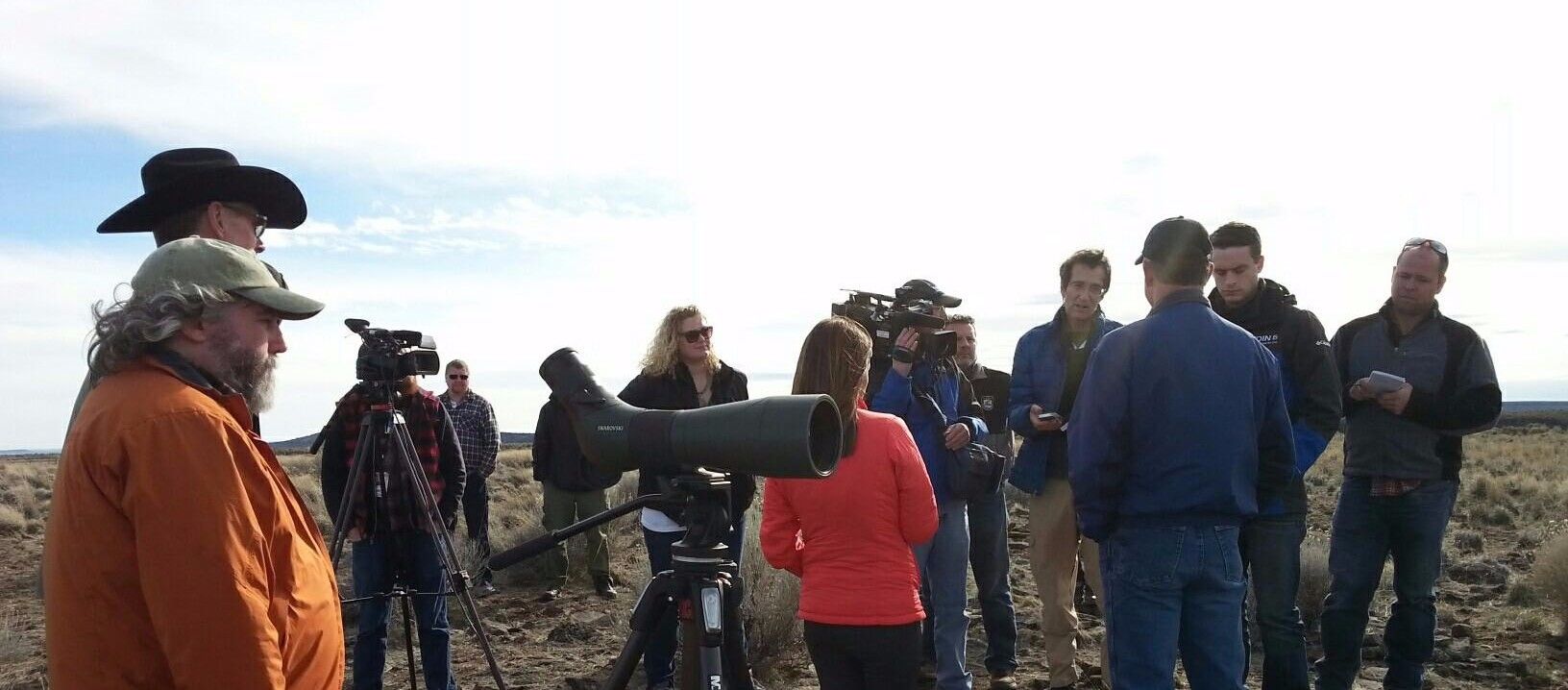High Desert Partnership will resubmit its conservation proposal later this year after receiving notification that its $18.4 million Regional Conservation Partnership Program (RCPP) award has been rescinded due to federal policy changes affecting conservation funding nationwide.
The USDA Natural Resources Conservation Service (NRCS) rescinded 69 of 92 RCPP awards that were awarded in 2024, including High Desert Partnership's "Expanding Resilient Working Lands in Harney County" initiative. The rescission affects conservation projects across the country, not just in Oregon. The RCPP program is not new and demonstrates how public-private partnerships can effectively drive conservation improvements on private lands.
"We are disappointed, but we are not deterred," said Brenda Smith, Executive Director of High Desert Partnership. "This $18.4 million loss delays significant conservation and economic opportunities for Harney County. While conservation work continues across the region, this funding would have enabled the strategic, landscape-scale projects our community excels at implementing. This award represented a coordinated effort among partners who understand what works in Harney County. The funding would have directly supported local businesses, created jobs, and helped ranchers build long-term water efficiency and drought resilience. We will continue pursuing these critical goals and plan to reapply, though our timeline has obviously been impacted."
Scope of Original Initiative
The rescinded funding would have supported comprehensive conservation efforts across Harney County, including improved irrigation and water conservation projects, wetland restoration, wildfire and drought resilience measures, and working lands easements.
"These funds would have helped ensure that our forest and range are less at-risk from catastrophic wildfire, that our ranches have greater certainty about irrigation water during times of drought, and that our landscapes, whether they be wetlands, forests, or sagebrush, are maintained or improved upon. Without these funds our ability to achieve this vision is delayed," noted Marc Hudson, Lands Programs Director at Oregon Agricultural Trust.
Not a Reflection of Merit
NRCS officials emphasized that the rescission decisions were based on funding source changes, not proposal quality. High Desert Partnership's proposal had successfully met all program criteria and was selected based on the merit of its collaborative approach and potential conservation impact.
"The decision is not a reflection of our proposal's merit or partnership strength," Smith explained. "We have a 18-year track record of successful collaborative conservation in Harney County, and that foundation gives us confidence as we move forward."
Path Forward
High Desert Partnership plans to resubmit its proposal with modifications for the next RCPP funding cycle using traditional Farm Bill funding rather than Inflation Reduction Act resources. The organization remains in contact with RCPP coordinators and federal partners to navigate the resubmission process.
Local partners expressed continued support for the collaborative approach despite the funding setback. "The problems we're trying to solve—drought, wildfire risk, habitat loss—those haven't gone away," said Ashley Tunstall, Biologist with Ducks Unlimited. "What we've learned is that partnerships outlast policy changes, and that's what gives us confidence we'll find another path forward."
Immediate Impact on Landowners
While the large-scale initiative has been delayed, existing conservation programs remain available to local landowners. NRCS funding continues through traditional programs, though the scale and scope of available projects may be reduced in the short term.
"We understand this news is disappointing for landowners who were anticipating this significant investment in our region. We want to assure them that existing NRCS programs continue, and we remain committed to finding solutions that support both their operations and our shared landscapes." shared Jason Kesling, District Manager for Harney Soil and Water Conservation District. "Landowners can continue to submit applications to our partnership of organizations for NRCS funding, the programs continue to exist, but the scale of work for the time being is being impacted."
Looking Ahead
High Desert Partnership plans to identify alternative funding sources while preparing its resubmission. The organization emphasized that the collaborative relationships built over 18 years of conservation work provide a strong foundation for navigating this setback.
"We will continue working with our collaborative network to identify alternative funding sources and opportunities to advance these vital conservation efforts," Smith said. "The strength of our collaboration isn't measured by any single funding award. For 18 years, we've proven that when we work together—landowners, agencies, and conservation groups—we can achieve meaningful results that benefit everyone."

